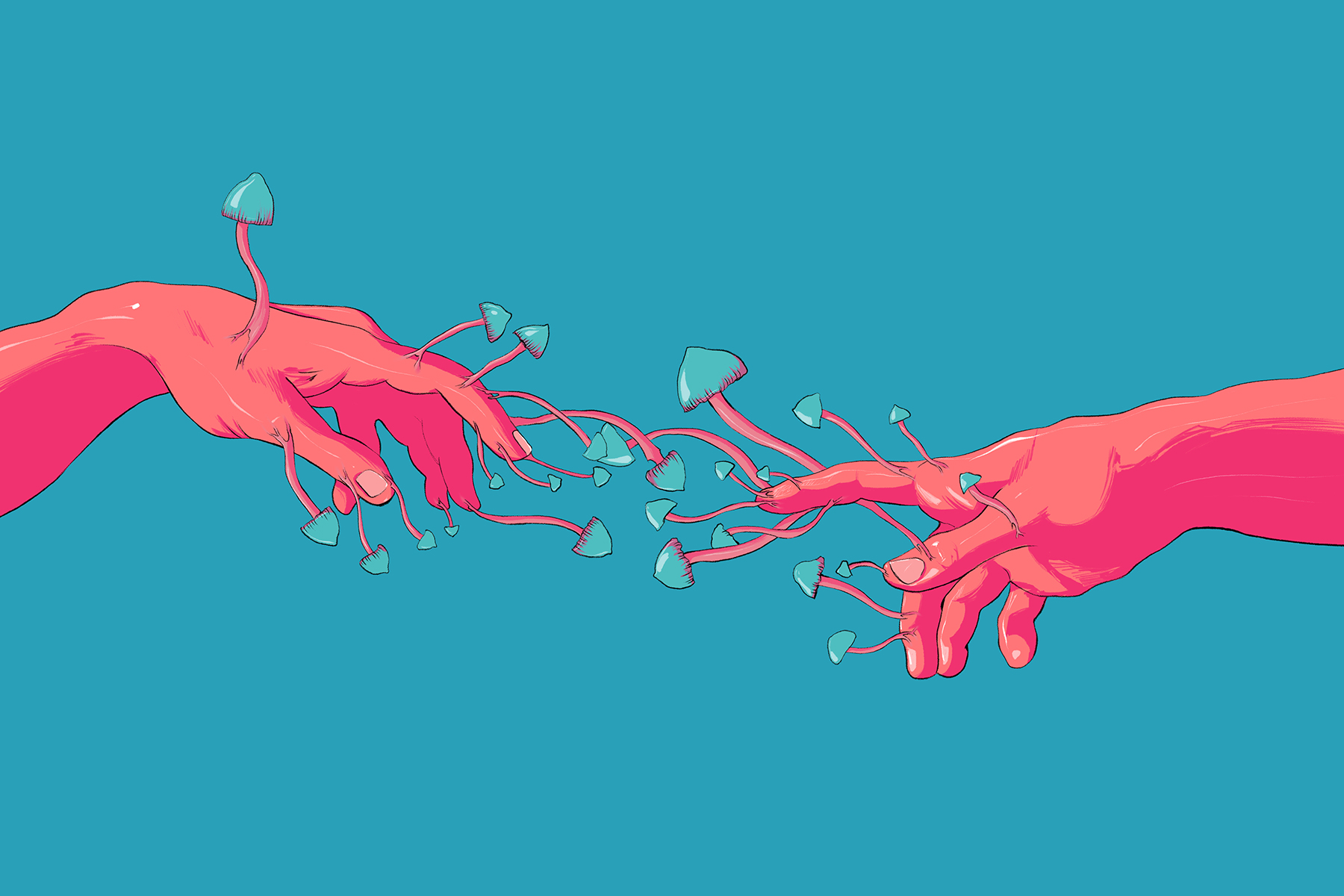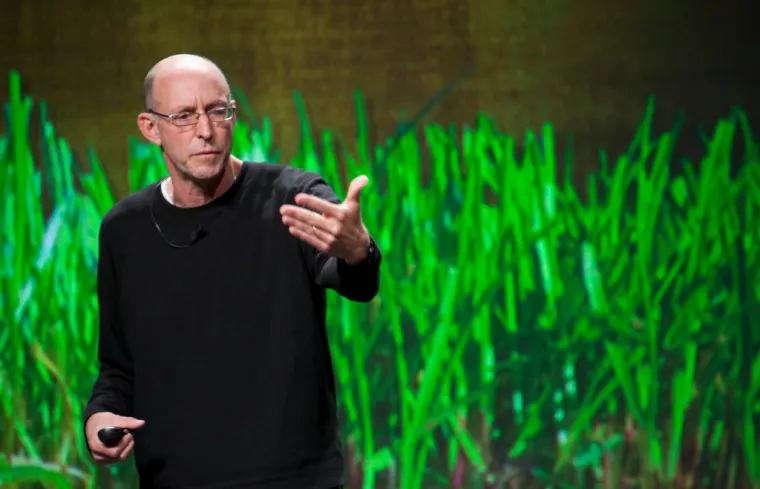Note: This goes without saying - I don't encourage the use of any psychedelics. This blog is simply meant to raise awareness for those who are uninformed about psychedelics (but still hold negative views towards it.) I firmly believe that one cannot genuinely dislike someone or something without first understanding or having knowledge about it.
Let's start with the basics:
Psychedelics are a class of drugs that can alter a person's perception, sensory experience and thoughts. They've been used for thousands of years in spiritual and religious contexts, and they've also been studied as a treatment for certain medical conditions.
The main effects of psychedelics are sensory changes, altered perceptions of time and space, and changes in one's thought processes. These effects and experience vary from person to person.
One thing to keep in mind is that the effects of psychedelics are highly dependent on set and setting. By "set", I mean the mindset of the person taking the substance, and by "setting" I mean the physical and social environment in which the experience takes place. Both set and setting can greatly influence the outcome of a psychedelic experience.
Risks of Psychedelic Use:
It's important to remember that there are potential dangers associated with psychedelic use, and these can be both physical and psychological in nature.
- Physical risks include things like elevated heart rate, elevated blood pressure, and nausea. In some cases, people may experience more serious side effects like seizures or even heart attacks.
- Psychological risks can include anxiety, panic attacks, and even lasting psychological disturbances like psychosis or flashbacks.
The psychological risks are probably a bit more complex than the physical risks. One of the most common risks is experiencing an adverse psychological reaction during or after the psychedelic experience. This can include things like anxiety, panic attacks, paranoia, or even delusions. In some cases, people may experience a condition known as "psychedelic-induced psychosis". This is a more serious reaction that can involve hallucinations, delusions, and disorganized thinking. There's a lot of research that's still being done on this topic.
Potential Benefits:
There's some promising research that indicates that psychedelics may be useful in the treatment of depression, anxiety, PTSD, and other mental health conditions. They may also be useful in helping people to overcome addictions, and they've even been shown to be effective in treating end-of-life anxiety in terminal patients. I want to stress that this research is still in its early stages, and more research is needed before we can fully understand the potential benefits of psychedelic use.
One example is a recent study that looked at the use of MDMA (also known as ecstasy or molly) in the treatment of post-traumatic stress disorder (PTSD). The study found that MDMA was effective in reducing the symptoms of PTSD, and the effects were long-lasting. This is just one example, but there are other studies that have looked at the use of psychedelics like psilocybin (the active ingredient in "magic mushrooms") and LSD in the treatment of various mental health conditions.

People often misuse psychedelics, using them primarily to achieve a state of intoxication or euphoria, rather than in the intended manner for exploration or therapeutic purposes. It's important to recognize that using psychedelics to get high is very different from using them in a traditional or sacred context. I think it's also important to recognize that using psychedelics in a recreational way can have risks, especially if people aren't informed about the risks or prepared for the experience.

I'd recommend reading Michael Pollan's book "How to Change Your Mind: What the New Science of Psychedelics Teaches Us About Consciousness, Dying, Addiction, Depression, and Transcendence.”. He's a journalist and author who has written extensively about psychedelic use, both in terms of its cultural history and its potential therapeutic uses. He's also particularly good at challenging some of the misconceptions around psychedelics.
Science Behind Psychedelic Use:
One of the most interesting things about psychedelics is how they work in the brain. Specifically, they interact with the neurotransmitter serotonin, and this can cause profound changes in brain activity. There's still a lot we don't understand about how this works, but it's fascinating stuff. And the changes in brain activity are thought to be at least partially responsible for the altered perception and sense of insight that people often describe when they use psychedelics.
Serotonin is a neurotransmitter that helps regulate mood, appetite, sleep, memory, and other functions. Serotonin also plays an important role in brain circuits related to how we perceive and process information about ourselves and the world around us. Psychedelics interact with serotonin receptors in the brain, and this seems to cause the brain to perceive and process information differently. Specifically, it seems to "loosen" the brain's usual pattern of connectivity, allowing more regions of the brain to communicate with each other.
With this loosening of brain connectivity, it's like the brain's usual filters are removed, and the person using psychedelics gets a kind of "unfiltered" experience of reality. This can be both positive and negative, because the brain's usual filters can help us make sense of the world and protect us from sensory overload. But removing those filters can also lead to insights and experiences that feel profound.
How this might lead to therapeutic benefits: One theory is that by loosening the brain's usual patterns of connectivity, psychedelics can allow a person to "re-wire" their brain, breaking unhealthy patterns and developing healthier ones. This is called "neuroplasticity". This re-wiring process is thought to be one of the mechanisms behind the therapeutic benefits of psychedelics.
Let's wrap this up: It's important to note that this research is still in its early stages, and there's still a lot to learn. Overall, psychedelics are a fascinating and promising area of research, and they may lead to new ways of understanding and treating mental health conditions. Now that you've learned a bit about Psychedelics, you're allowed to hate! XD.
“MDMA (also known as ecstasy or molly)” this are stimulants which takes heavy toll on user. Psychedelics has less dependency and people cannot be abuse substance's like Psilocybin mushrooms or LSD where as stimulants MDMA, Meth, Molly, CoCa creates a heavy dependency/side effects on the user.
hey there mate! I'm here coz, there was a whole list of everything about git stuff in here but it ain't anymore, mind sharing if you have them, would mean a lot.. hope you're doing well in your life :) best regards, panda.